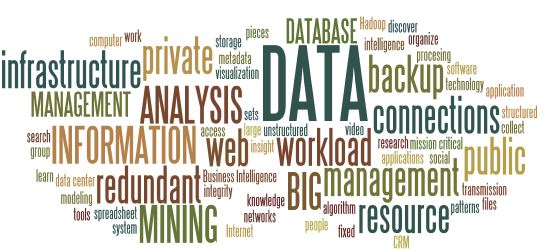IN most African countries like Nigeria, individuals are typically born, they grow, live through adulthood, retire, aged, and die without the government’s knowing or being aware of their existence. This happens more in the remote villages and more within the informal sector and within the unbanked population. Noticeably, due to lack of political will, successive governments and heads of nations in these African countries have ignored the lingering need for a data management system to improve the political, societal, and economic development landscape. Big data analytics has been the technology drive that many nations of the world are adopting for improved governance, Africa should not be an exception.
A clear instance in recent time was in Nigeria, the biggest economy in Africa, where millions of the citizens were expectant on palliative care from the government but due to logistics and lack of national data bank, it was difficult to achieve a seamless reach to the citizenries. The distribution could have been more effective with an efficient database and social welfare systems instead of the eventual looting of the stored palliative items that ensued. Social welfare protection is key to provide citizens with an economic safety net during periods of illness, economic hardship.
Records indicated that the social welfare system in the form of insurance and assistance programmes to the public, emerged in Europe in the 1800s to majorly support the vulnerable and it has been driven largely by adequate data management. This is the 21st century, yet Africa is still struggling with a data-driven economy. It is significant to state that most of the major decision-making or policies in western countries from the USA, Canada, Australia, and most European countries, these days are largely data-driven. For instance, the Canadian government announced COVID-19 aid in the form of a one-time payment of up to $500 for eligible seniors to offset any increased living expenses they have incurred as a result of the pandemic. In the same vein, such government supports and economic stimuli are applicable in the USA and the UK to save jobs, businesses and to minimize the economic impacts of the pandemic. In Africa, it has been a difficult task and the issue has been mainly due to the lack of adequate citizen information, thereby increasing economic hardship and poverty.
Consequently, a national database is vital, it would provide insights into population demographics, unemployment rate, age distributions, births, deaths, mortality, marriages, and infrastructure gaps. It can also help in developing the right targeted policies to fix or alleviate, social issues such as corruption, inequality between the wealthy and poor, level of education, and rate of unemployment among others. Under international human rights law, Nigeria’s government has an obligation to protect people’s rights and to ensure a meaningful standard of living, including adequate food and nutrition, the highest attainable standard of health, and the right to social security. To conveniently achieve this all-important mission, agreeably a national database is required. In addition, to address the obligations especially the unemployment rate distribution across the country especially can be addressed, the National database is key and can help in a lot of national planning.
The process of capturing and storing citizen information backed with a data protection Bill in the National Assembly is highly desirable and seemingly necessary, particularly in Nigeria. This national database can be used for so many verifiable and evidence-based statistics and evaluations. A lot of inferences can be derived from it. At this point, post COVID-19 has presented an opportunity, which is the creation of a national database in these African countries. It is highly desirable and the benefits outweigh the costs meaningfully. When a national database is in place, it can be accessed and analysed. Contact tracing can be made a lot easier. It can help in a variety of other ways such as public service improvement policy designing public health development, public safety, national security, national development, and poverty reduction. It can also help in developing empirically-proven techniques for fostering human and capital development. No nation attains sustainable economic growth without developing a national database necessary to drive such growth. The national database methodology is a less expensive option to performing a physical census because it is a register-based census.
So far, the year 2020 has been filled with disruptions due to the novel coronavirus (COVID-19). Despite COVID-19 being a health issue, it has continued to have a high-impact and severity on the economy, business, and lifestyle globally. It continues to reshape the ways of doing things and high disruptions across all sectors and countries. For a developing country like Nigeria and as obtainable in most African countries, the disruption level is higher, stemmed with fragile economies across the continent. The majority of the African populace lack a reliable social welfare system; therefore, the socio-economic impact of the COVID-19 has been more severe on the continent. It is therefore recommended that concrete policy adoption be considered for the management of national emergencies, humanitarian responses, reduction of the impact of the current pandemic, and the attendant looming economic recession. Returning to business of lack of a strong data management culture and lack of sound data for governance Post COVID-19 will only further retrogress the continent’s development and living of the over 1.2 billion population. In fact, solutions to social and economic problems are often inseparable from the data
Broadly speaking with COVID-19, the number of incidences keeps increasing, consequently, flattening the curve or having a drop in the reported cases is still a mirage at least for now mainly because of lack of effective data-driven decisions. Therefore, measures to preserve the livelihoods of workers and businesses and ensure they get by conveniently during this period is vital. This is supported by the World Bank’s stipulation in their 2005 report, which recommends that countries should design, finance, and deliver social welfare accordingly with a data management system.
The methodology to adopt as part of the Post-COVID-19 recovery policy and national development is for the countries to introduce a data-driven economy and effective national data management platform. In my opinion, data is a developmental infrastructure that can provide critical insights into the trend of human actions, practices, behaviours, and social impacts. The government cannot improve on school infrastructure without adequately knowing how many children need to be enrolled. Therefore, when citizen data management is properly harressed, it holds tremendous potential to stimulate economic growth and measurable development.
The COVID-19 experience exposed this inadequacy in Africa and this can be corrected easily by initiating and achieving an acceptable national database in each country. From adequately capturing birth registration, education enrolments, adulthood, citizens in Diaspora, retirees, to the closure by death registration, the citizenry must be known, captured, and catered for adequately in Africa.
Nonetheless, the COVID-19 relief programmes across Africa just go to show how far behind the continent is with the data-driven economy and national database development, especially in Nigeria. The vast majority of people in Africa are most vulnerable according to context observation, and many of the countries are still grappling to protect their citizens from the negative impact of the COVID-19 pandemic.
That said, the fertility rate in Nigeria is very high with a population forecast of 400 million by 2050 according to reliable data from Worldometer. Tackling poverty in the land and reducing the high rate of unemployment has only received low attention by the successive government based on historical trends. With a national database in place, enactment of specific and targeted policies to improve the lives of its citizens and its economy can be easily achieved.
These tasks have been difficult to achieve in Nigeria, especially with identifying and reaching out to the very vulnerable citizens amongst the over 200 million populace. One of the significant reasons has been due to the high variety of datasets and the lack of a reliable, verifiable, harmonised, and efficient national database. In Nigeria many government institutions and agencies generate populace personal data daily; Federal Road Safety Commission (FRSC), Independent National Electoral Commission (INEC), National Bureau of Statistics (NBS), National Identity Management Commission (NIMC), National Population Commission (NPC), and other organisations including the banks in the financial sector and telecommunication companies in the telecommunication sector but the big issue is that the data remain unharmonised with no centralised platform. Citizens are made to provide the same information at different times to different agencies causing lots of time wastages and duplications.
- Dr. Olubiyi, an entrepreneurship and small business management expert with a Ph.D. in Business Administration sent this piece via drtimiolubiyi@gmail.com
YOU SHOULD NOT MISS THESE HEADLINES FROM NIGERIAN TRIBUNE
COVID-19: Nigeria Recorded More Deaths, Recoveries, Less Cases Last Week
Nigeria’s COVID-19 recoveries increased last week compared to the previous week, Tribune Online analysis shows.
Last week, November 22 to 28, the 48th week of the pandemic in Nigeria, a total of 935 patients recovered and were discharged last week, compared to 885 who were discharged in the previous week…Data-driven economy Data-driven economy Data-driven economy
We Have Not Decided Yet To Call Off Strike — ASUU President
t is still uncertain whether the ongoing strike by the Academic Staff Union of Universities (ASUU) will end soon as President of the union, Professor ‘Biodun Ogunyemi said there were certain steps to be taken to reach that final conclusion on the issue…Data-driven economy Data-driven economy Data-driven economy






